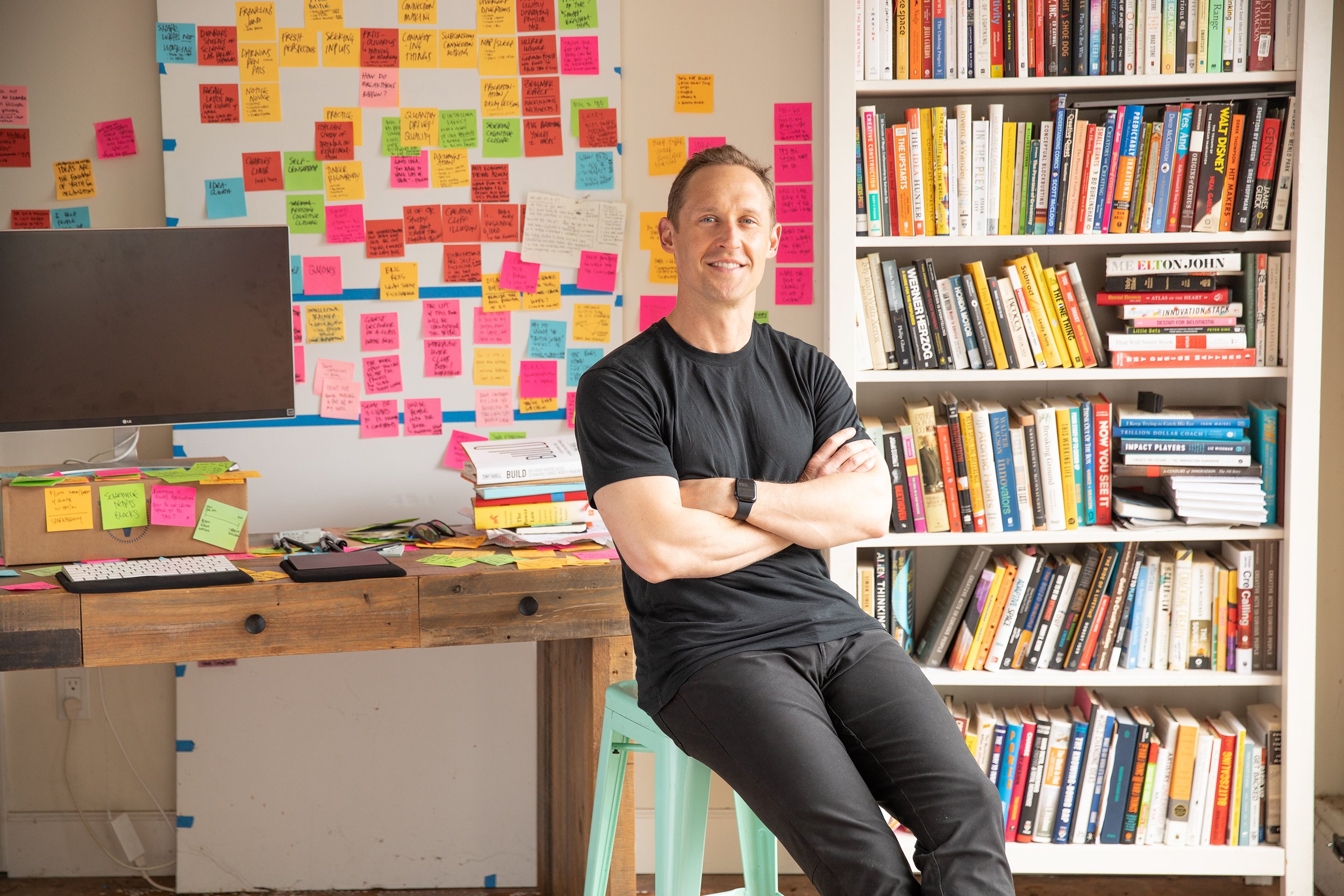
Methods of the Masters
A blog on the art & science of creative action.
Request Options
Legendary Stanford professor Bob McKim had a simple, standard response to any student seeking his feedback on a new project: “Show Me Three.”
Make A Manifesto
Inspired by an assignment we give our graduate students, here I attempt to state my intent as a researcher and teacher. Your feedback is very much welcome.
Consider the Odds
Innovation is a numbers game. Knowing prior probabilities helps founders calibrate their efforts. Some simple math can improve your speed of learning dramatically.
Be Your First Customer
The company’s next product might be hiding in plain sight: where you’re already servicing your own needs. Thinking about yourself as the first customer among many, instead of the total addressable market, is a game-changer.
Embrace Constraints
If necessity, as they say, is the mother of invention, perhaps we could say that constraints are invention’s crazy uncle. Better not to fight them, and instead spring off of them into unexpected & truly differentiated directions.
Call A Time Out
Perhaps the greatest thing one can do to establish trust is to address the elephant in the room — “Is this person safe?” — head on, straight out of the gate. Inspired by Ise Lyfe.
Normalize Growth
Students mistakenly assume that, while they’re supposed to be learning, yet surely at some point — ostensibly, by the time you become a “successful teacher” — you don’t need to grow anymore. This is a shame, as it robs them of agency and power.
Map Your Mind
“You know that fantastic feeling you get after a great brainstorm? How do you get that on your own?” David Kelley, founder of IDEO and the Stanford d.school, gave me a lesson in pushing my own thinking. “Do a mind map. They’re the key to my creative success.”
Make Sense of Things
The very act of writing serves to reinforce learning. Putting things into our own words turns information into knowledge. And sharing has the potential crystallize that knowledge, not just for others, but even more importantly, for ourselves.
Make It To Make It Better
Philippe Barreaud, Head of Michelin’s Customer Labs, has a hard-won portfolio of insights from leading global innovation for 20+ years. Here, he revels in the paradoxes of prototyping as a toolkit.
Obliterate Compartments
One of the most transformative inputs to shift the trajectory of Phoebe Yao’s start-up, Pareto, came when she least expected it: not during a mind-blowing mentor meeting arranged by a VC, but in a chance encounter with a friend in the park.
The Problem With Solving Problems
I had the privilege of thinking alongside the brilliant Kim Scott, and shared some insights on her “Radical Candor” blog. Re-posting here with her permission. Feedback welcome!
Look For What’s Right
What kind of contributions get rewarded in your workplace? What constitutes brilliance? It’s critical to recognize that the definition of “genius” changes as we shift between convergent and divergent modes of thinking — and what gets rewarded should, too.
Hold A Shoot-Out
Rick Rubin is one of the most successful music producers of all time, in any genre. His approach to production has more in common with technology innovators like Steve Jobs than some fans might think.
Edit Your Subject Line
Early stage founder gets devastating feedback on a rough concept pitch. What should she do? Don’t give up quickly! Make small tweaks before making big pivots.
Don’t Eliminate Failure
What if eliminating failures reduced the likelihood of a breakthrough. There’s lots of research that suggests that’s the case. So why do we carefully craft policies designed to eliminate failure?
Practice What You Preach
A legendary assignment at Stanford puts students face to face with critical gaps in their life. Identifying those gaps is straightforward enough, but closing them is the real design challenge!
Correspond Broadly
Charles Darwin, while working on the theory of natural selection, wrote an astounding 15,000 letters to over 230 collaborators across more than 10 different scientific fields. Few appreciate the power of sharing partially-formulated thoughts as much as he did.
Vary Cooking Methods
Today’s post comes from Chris Aho, an integral member of the ideaflow council. Chris writes about his 20+ year responsibility to deliver fresh material weekly — and what that taught him about cooking up ideas.
Delay Decisions
John Cleese highlights a classic study of architects in his recent memoir, “Creativity: A Short and Cheerful Guide,” which illuminates the value of purposeful procrastination, and how it sets creatives apart.




















